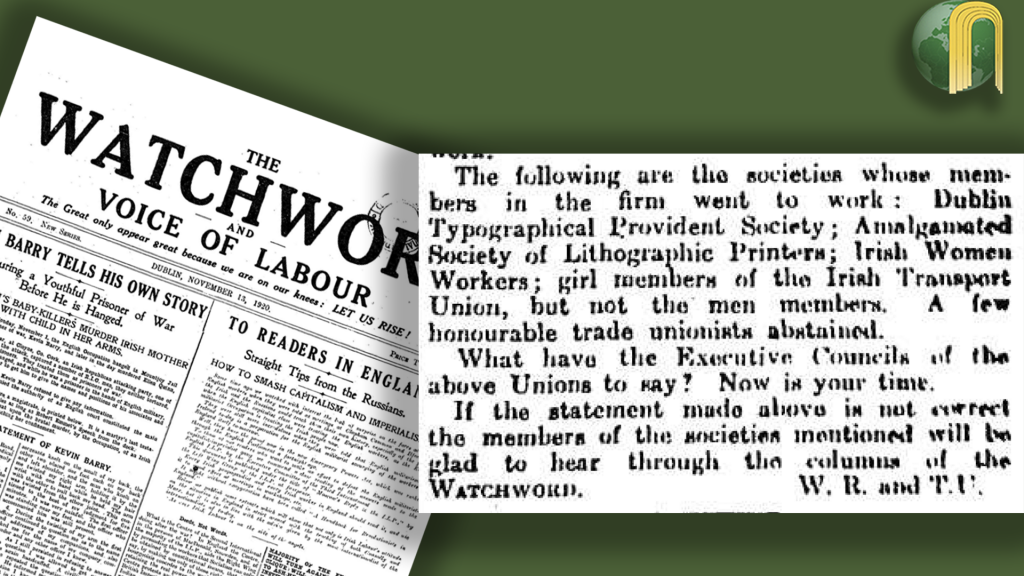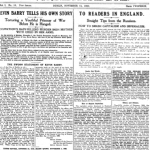
Amidst all of the bloodshed which November 1920 brought, the cause of labour and the work of unions continued, protecting the rights of workers.
However, within that remit of protecting workers the unions by this stage were also involved in the wider Republican campaign which was waging throughout the country. In November 1920 the newspaper
The Watchword of Labour publically condemned those who had gone to work on the day of Terence MacSwiney’s funeral the previous month. Following the death of the Lord Mayor of Cork on hunger strike, the unions had called on all members to withdraw from work on the day of the funeral as a mark of respect. The stoppage was to take place on 29 October. Contrary to the order, employees of James Walkers printers in Rathmines turned up for work; as did the Dublin Typographical Provident Society, the amalgamated society of Lithographic Printers, the Irish Women Workers, girl members of the Irish Transport union. Bakers went to work on the day as they were deemed to be ‘essential workers’ (a phrase which resembles the current pandemic) but confectionary workers were not and were criticised for such. It was later stated the women’s branch of the Irish Transport Union were ‘taking steps’ to rectify what went wrong. The unions actions across the country had the effect of people nailing their colours to the mast in coming out in support for the martyred Lord Mayor of Cork.
Source : The Watchword of Labour, 13 November 1920, page 7.
 watchworld_13nov1920pg7
watchworld_13nov1920pg7
 watchworld_13nov1920pg7
watchworld_13nov1920pg7 